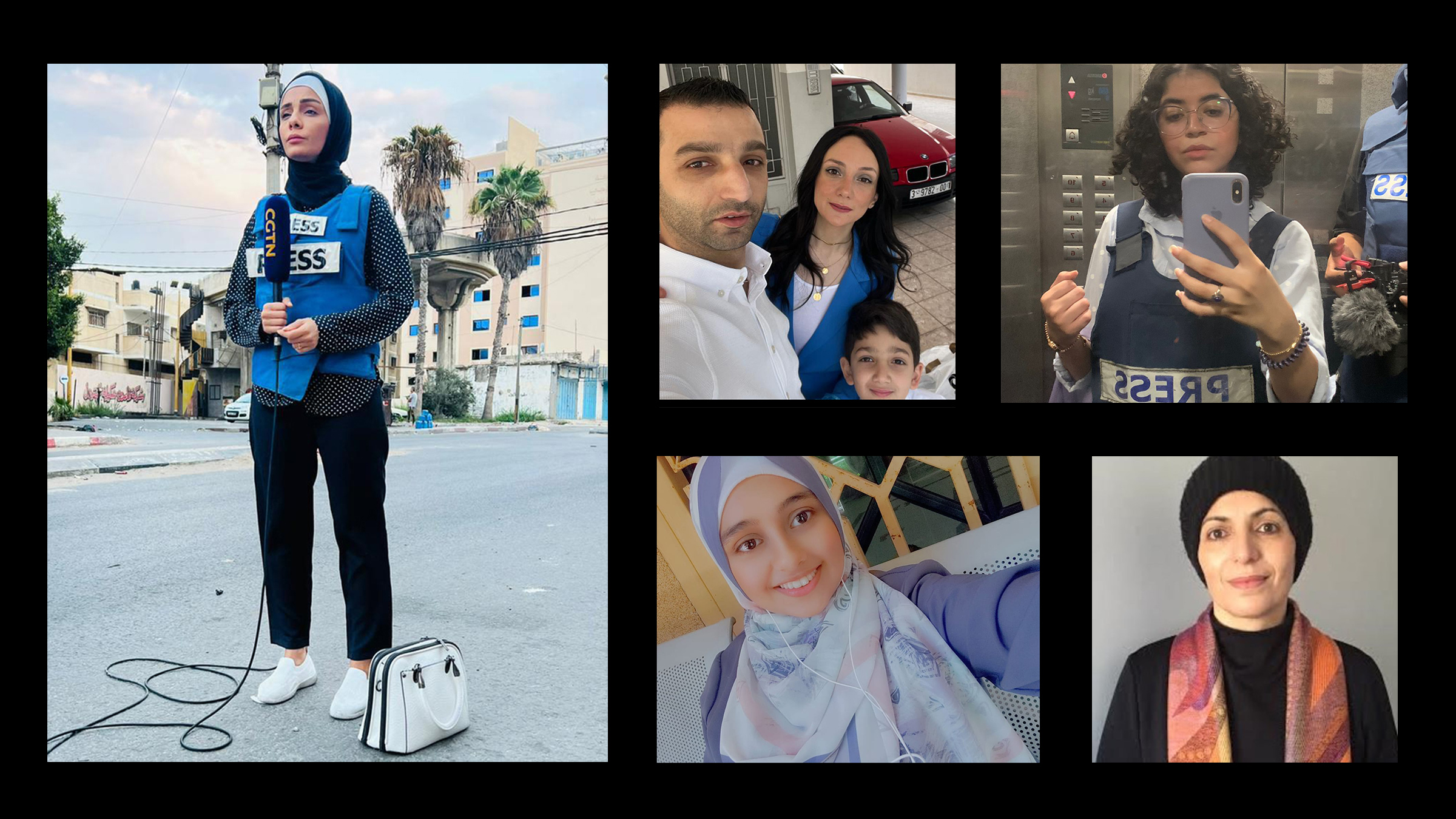The Gaza Strip has endured seemingly endless tragedy. As Israel wages its war to root out Hamas in the aftermath of the latter’s Oct. 7 massacre, which killed 1,400 in Israel, at least 3,700 Palestinians in Gaza have been killed. A blast at Al-Ahli hospital where many Gazans had sought refuge resulted in the loss of as many as hundreds of lives.
But for all the attention being paid to Gaza in the last two weeks, it remains difficult to hear the voices of Palestinians living there. Israeli authorities have cut off fuel and electricity to the enclave, making it difficult for residents to keep their devices charged, let alone reach the outside world. While many international journalists are based in Israel, there is a very limited foreign media presence in Gaza. What reporting does come out of the Strip is largely from Gaza-based Palestinian reporters such as Noor Harazeen, who are simultaneously covering and living the story. “I try to be as professional as possible, just so no one can say that because I am a Palestinian journalist, I am taking the Palestinian side, and spreading lies,” she says. “I try as much as I can to hold my tears back, but in some cases, I can’t do that.”
The picture is a grim one. To live in Gaza today means not only facing airstrikes, thousands of which have been carried out on Gaza over the past 13 days, but also the threat of malnutrition and inability to access medical care, as Gaza hospitals reach a breaking point. “The health system had 2,500 beds when the war started, and now it has 12,500 wounded,” says Ghassan Abu-Sittah, a British Palestinian doctor currently working in Gaza. He notes that the health system was already “on its knees” as a result of a 16-year blockade, enforced by Israel and Egypt, that has severely curtailed the movement of goods and people in and out of the Strip, half of whose 2 million residents are children.
Despite the Israeli military’s order late on Oct. 12 for the 1.1 million Palestinians residing in northern Gaza to flee south—a mass evacuation that the United Nations dubbed “impossible” without devastating humanitarian consequences—there are no safe havens in Gaza. As hundreds of thousands have fled to southern cities such as Khan Younis and Rafah, Israeli airstrikes have followed.
That all of this is happening in full sight of the world makes many Palestinians in Gaza feel alone—even betrayed. “If you tell any Palestinian ‘Tell your story now,’ even myself, they will say, ‘Just shut up, no one cares,’” says Ghada Ageel, a visiting Professor at the University of Alberta in Canada, whose extended family remains in Gaza. “We have been sending the stories. The problem is not with the story. The problem is with Western media and Western politicians that opted to remain silent.”
Still, many Palestinians are keen to share their experiences—if not to save their lives, then to at least to prove that they mattered. “I hope that we’ll stay alive, not because I want life, but because I want to tell our stories, the stories of our people,” says 21-year-old Tala Herzallah, a student in Gaza.
You can read Herzallah’s and other Palestinians’ stories from Gaza below. They have been edited for length and clarity.
—Yasmeen Serhan
Read More:
Dr. Ghassan Abu-Sittah, 54
Abu-Sittah is a plastic surgeon based in London who arrived in Gaza the morning of Monday, Oct. 9 to volunteer with Médecins Sans Frontières. He spoke to TIME on Oct. 19.
I’m currently at Shifa Hospital in the burns unit. I literally work all day in the operating room, and at night, I sleep on one of the [stretchers]. Shifa Hospital itself, which is Gaza’s largest hospital, has turned into a camp for the internally displaced with tens of thousands of families in every compound of the hospital, in the corridors, on the stairwells.
The day before yesterday, I had been asked by colleagues at al-Ahli hospital to help out. So I took an ambulance and I was operating there till 5:30 p.m. when I realized I was going to have to stay over because it wasn’t safe to travel at night, and so that I could continue operating into the night.
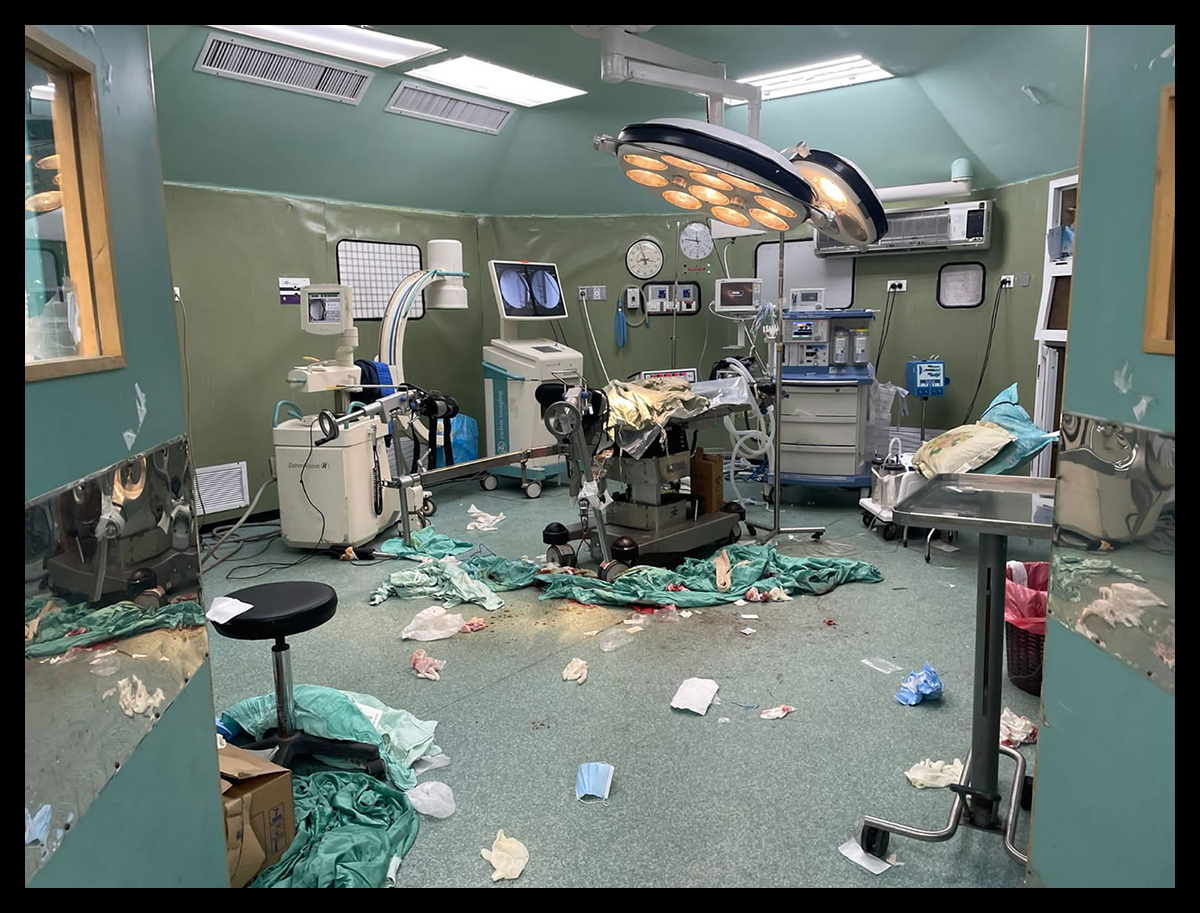
Later on that evening, there was a loud screech followed by the explosion. When I went out of the operating room to see what had happened, I could see the courtyard of the hospital was on fire. The ambulances were on fire. The cars were on fire. And the palm trees were on fire. The courtyard, which had been lit up by the fire, was just full of bodies and bits of bodies.
After the explosion, the wounded started coming in and I went to the emergency department. There were scenes of absolute pandemonium. Dead bodies everywhere, people screaming, people with amputations. My first case was a 5-year-old girl whose mother had been killed along with her sister, and who had this massive wound in her right arm—the whole of the right arm. These wounds are extremely contaminated. There’s dirt and gravel and pieces of glass and metal in the wound that have to be cleaned. The dead tissue needs to be removed.
And then we carried on operating until 12:30 a.m. in the night. I tended to a guy with an amputation just through his thigh. I used his belt as a tourniquet and I resuscitated him. Then I went to another guy who had shrapnel in his neck and had hit a blood vessel and was squirting blood out.
I was still quite shaken up yesterday. But by midday, I decided that the only way was just to get back to work.
Yesterday, the orthopedic surgeons at Shifa said they had no more external fixators. Things are just falling apart. The hospital probably has twice the number of wounded patients that it has capacity for. Yesterday, they ran out of wards and corridors for mattresses to keep the wounded on. The water pressure reaching the hospital is now so low they can’t operate the central sterilization machine. We’ve reverted to using Cidex, which is a chemical disinfectant.
The health system in Gaza had 2,500 beds when the war started, and now it has 12,500 wounded. But it had already been on its knees as a result of the 16-year siege imposed on it.
I’m feeling extremely pessimistic. This is going to be a long, drawn-out war, and we’re just at the beginning of it.
—As told to Astha Rajvanshi
Afaf Alnajjar, 21
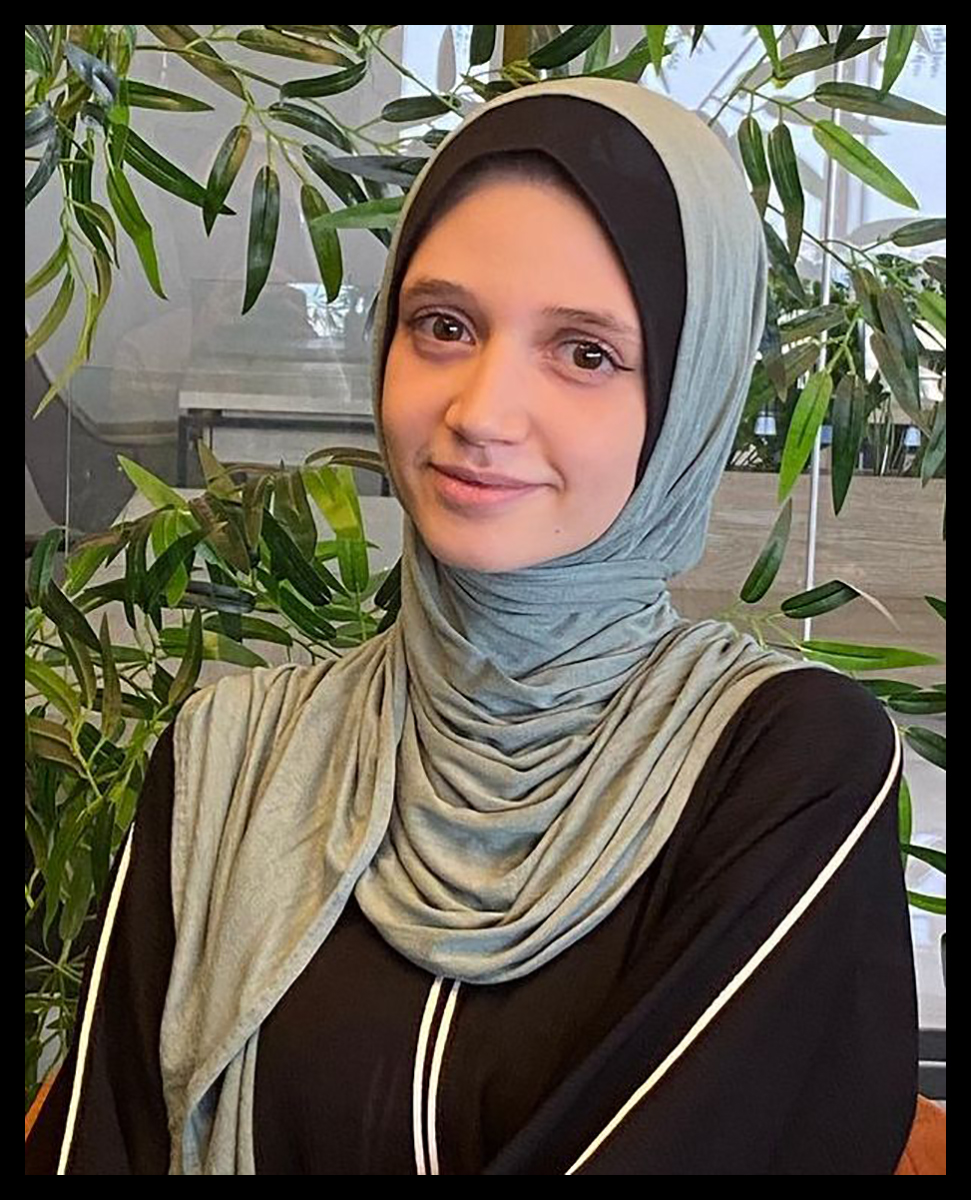
Alnajjar is a Palestinian student studying English literature at the Islamic University of Gaza in Gaza City. She fled to Khan Younis in the south with her family and spoke to TIME on Oct. 18.
I’m a new bride-to-be. I just got engaged a week before the attack. My engagement party was supposed to be this past Thursday, the day before we had to evacuate from the hotel. I had everything prepared. And then suddenly, in the blink of an eye, everything is shattered.
On Oct. 7, my family woke up to the sounds of rockets. We decided to go to a hotel that was supposed to be safe because it had something called “U.N. clearance.” We stayed in the hotel for four or five days. Then the situation got extremely bad. Entire neighborhoods around the hotel were wiped out and completely destroyed by airstrikes. Doors fell, some of the windows shattered, the ceilings also fell, aside from the water and the electricity and food shortages. There were about 350 people in the hotel, all crammed in one place because the staff told us to go to the lower floors of the hotel to be safer, but obviously we weren't safe.
We were told to move to the south of the Gaza Strip. It took three hours to find a taxi that was willing to go to Khan Younis. We knew that we could potentially be targeted by an airstrike. On the same day that we evacuated, more than 70 people were killed in an airstrike that targeted the street for evacuation, which was marked safe by the Israeli forces. Thankfully we were able to get here in one piece.
We haven’t had any water in the house since Friday night. We haven’t had any electricity. We use car batteries to have the internet on and we have to take our phones and charge them in nearby shops or in our neighbors’ homes who have solar energy.
The attacks on Gaza are always brutal. However, this time is much, much worse. We’re talking about entire families being wiped out—and when I say entire families, I’m not talking about a family of four or five. I’m talking about a family of 40-plus people.
I have to sleep every single night with the thought that I might wake up under rubble, if I ever wake up. My mom has to sit my 11-year-old brother down and tell him how to deal with the situation if he finds himself under the rubble.
I see the support and love of millions of people around the world. However, people who are in positions of power are not doing anything to stop this. Everyone goes around and says “we condemn the things that are happening.” We’ve already condemned enough. It’s time to stop this. They’re talking about aid coming into the Gaza Strip. What’s the point of aid if people are still going to continue dying?
I’ve reached a point where I can’t dream of anything but war and destruction. I've started hearing voices, I’ve started seeing things. It feels like we’re just waiting for our turn. It seems like we’re dead, but our death is pending. It’s on pause until an airstrike comes and attacks us.
—As told to Yasmeen Serhan
Nihal Alami, 33
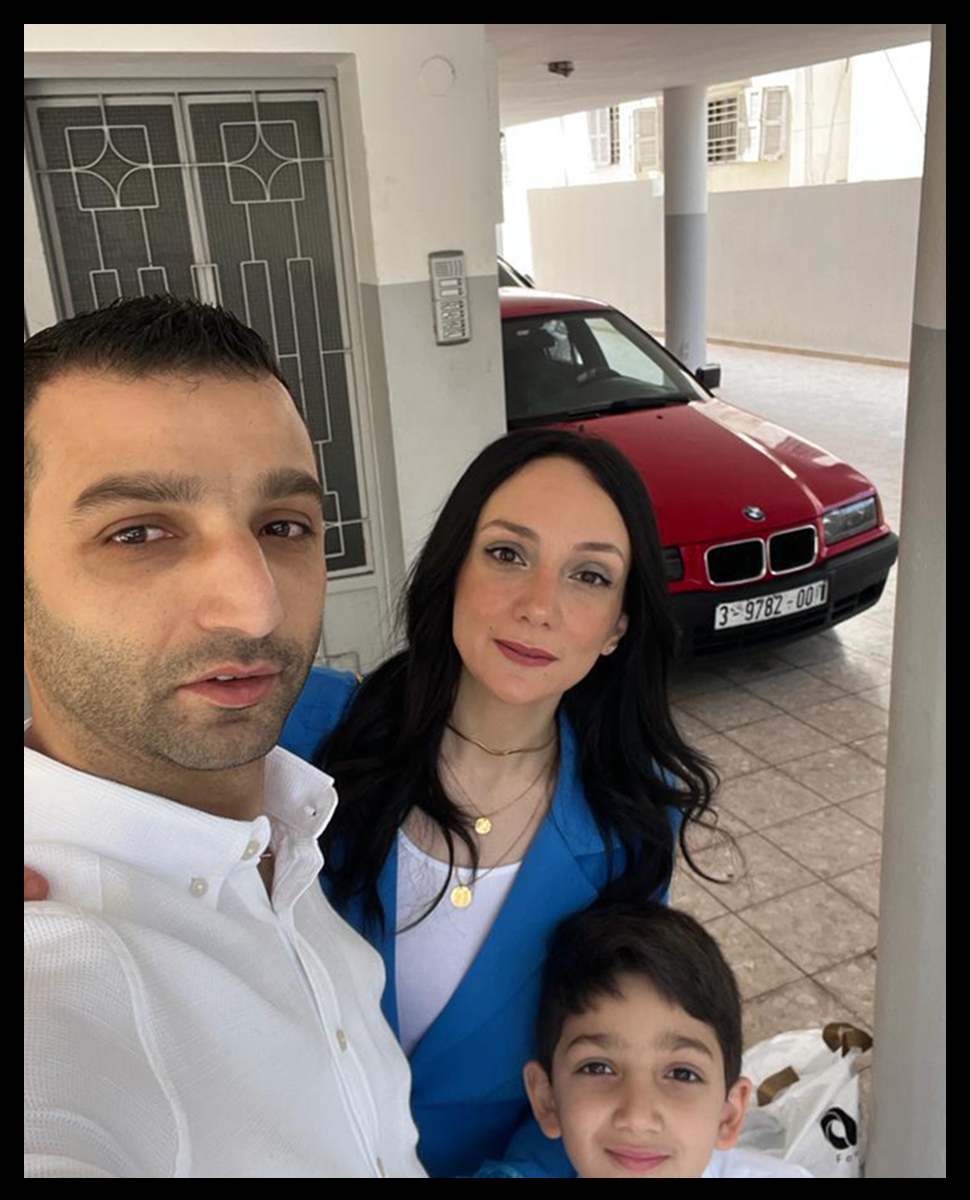
Alami is translator at the Palestinian Center for Human Rights. She spoke to TIME on Oct. 18.
I was born in Gaza City and have grown up under an Israeli blockade depriving us of all our basic human rights. What I want the world to know is that things in Gaza did not start on Oct. 7 and it is not a war against Hamas. Israel has collectively punished us for 16 years. If Israel is actually launching a war against Hamas, then why does it close all crossings and deny entry of humanitarian aid and other basic supplies to the civilian population?
On Friday, I evacuated to Khan Younis in southern Gaza with my family. We are now with 20 other people in one apartment. There were many nearby bombings in the so-called “safe area” in the south.
We have no water, fuel, internet, or electricity. We evacuated after receiving a call to evacuate our house at dawn. So we went to my uncle’s house. There were very heavy airstrikes in my area in Gaza City. My neighborhood has been wiped out by the warplanes. Israel is still bombing civilian areas all over Gaza City.
My husband lost his shop, our source of income, after Israeli warplanes bombed a commercial building, al-Watan, in Gaza City in the very first days of the wars. We are running out of all necessities. We consume too little to survive.
In Gaza you do not plan, the Israeli occupation plans everything for you. Our hopes are to stay alive, to not lose any of my beloved ones, and to go back to my home in Gaza City.
We feel disappointed by the world’s inaction and silence toward the Israeli crimes against us, starting from closing the border crossings and banning entry of humanitarian aid convoys. We are very frightened, feeling that death is very near and fearing the unknown.
—As told to Astha Rajvanshi
Noor Harazeen, 33
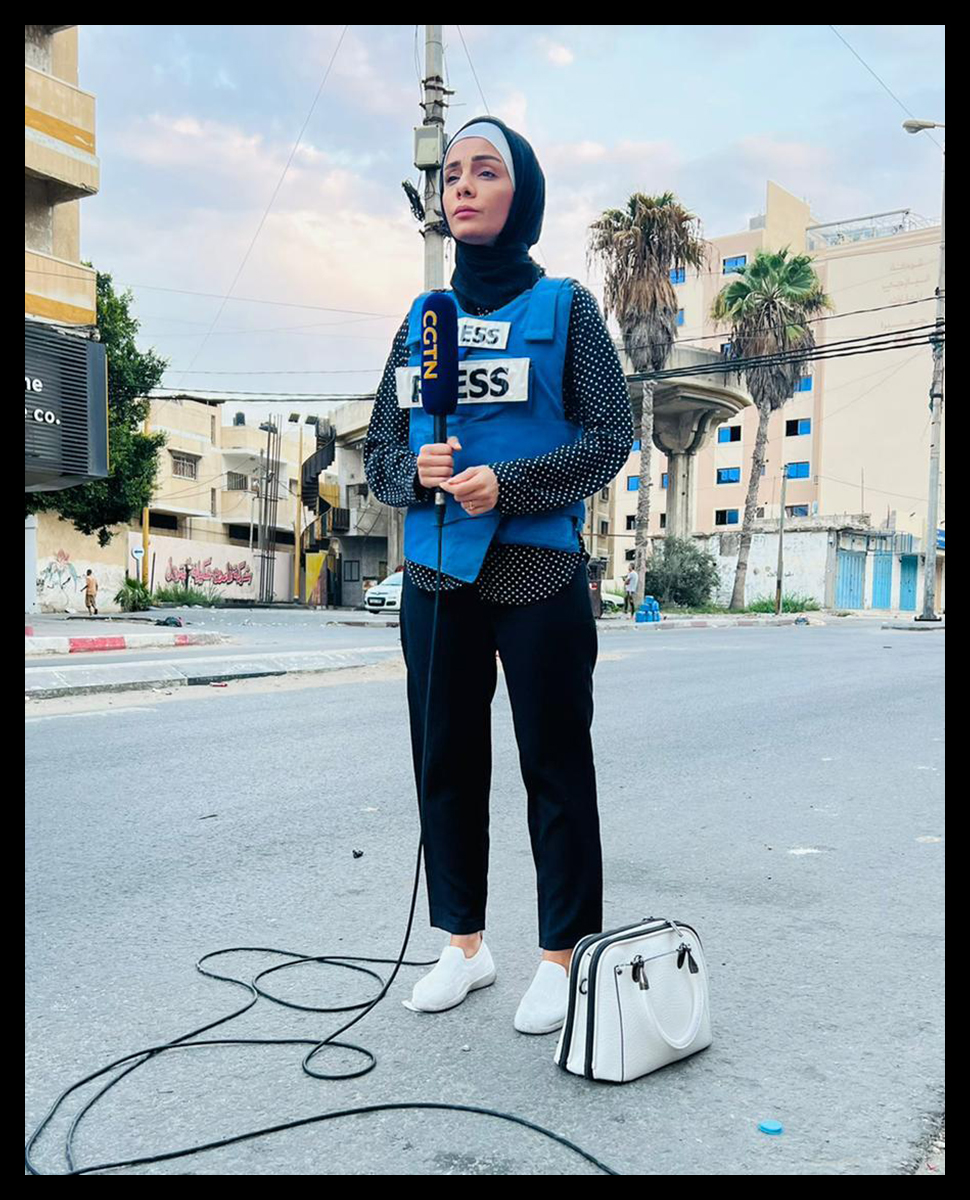
Harazeen is a Palestinian journalist, and was among the hundreds of thousands of Palestinians who fled to southern Gaza following Israel’s evacuation order. She spoke to TIME on Oct. 17.
On Saturday at 6:30 a.m., we started hearing the rockets being fired from Gaza. And we were shocked, and we’re still shocked now. We’re used to Israel starting the wars. But once we saw the news we realized this is going to take more time.
I was raised in Dubai and I came back to my homeland in Gaza in 2006. I live in central Gaza City in al-Rimal neighborhood, which has been evacuated. I am now in Deir al-Balah in southern Gaza. But actually there are bombings here too. So they evacuate us for our safety but there are bombings in the places they told us to evacuate to.
My journey getting to southern Gaza after the evacuation order was actually easier than others. I was lucky enough to have a taxi to transport me. I had money to pay and rent a place in southern Gaza. It was hard on me to evacuate, especially with my kids and trying to gather as much as I can but I was actually lucky looking at the other people. When I was in the car I saw people taking that route on their feet with their children and they were taking blankets and food. It was such a sad thing to see. I felt that I was such a lucky person.
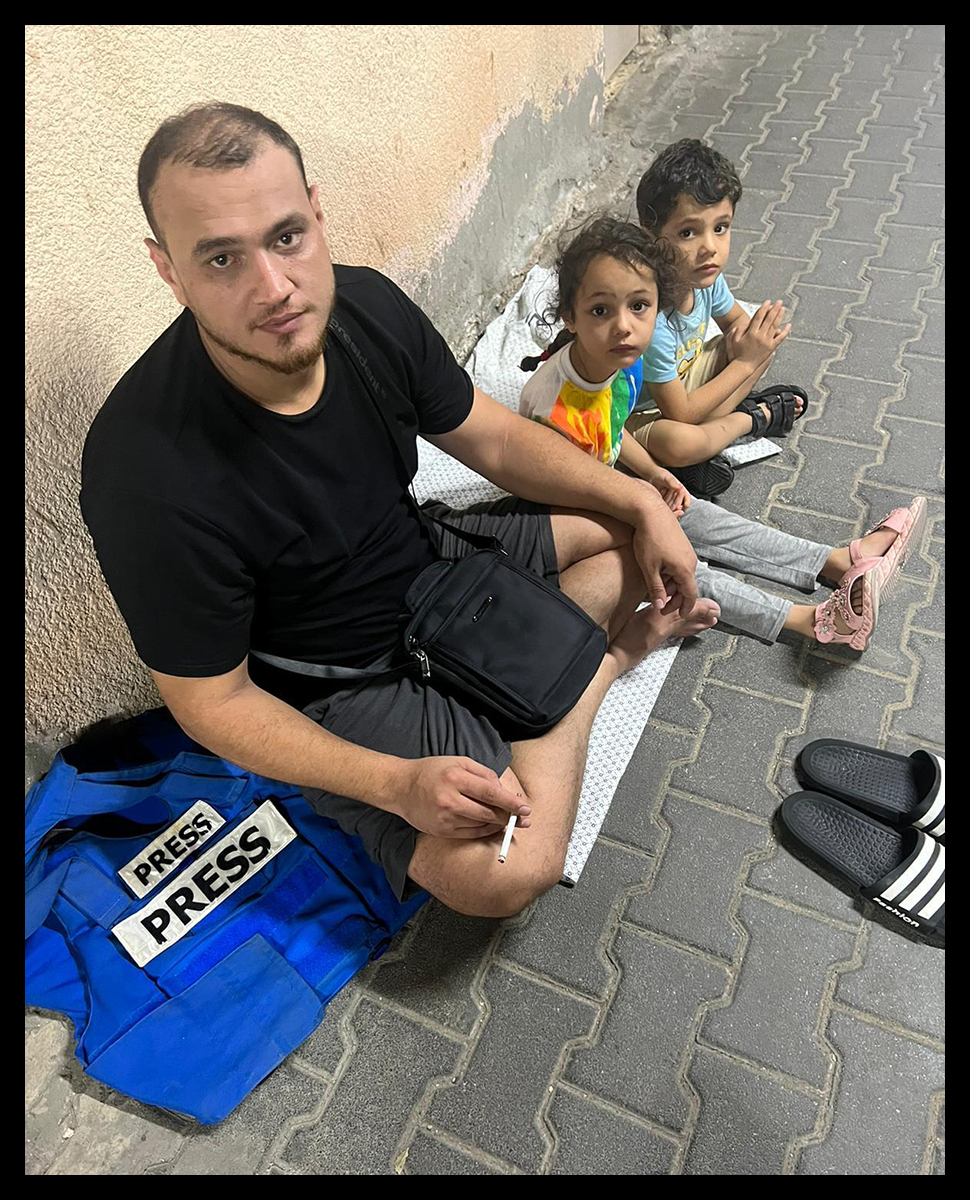
We also have other challenges. There is no wifi. There is no electricity. There is no fuel. I’ve been staying here in Shuhada'a Al Aqsa hospital in Deir al-Balah taking shelter for four days now. I can’t move around because there are airstrikes everywhere.
The biggest challenge, as a Gazan journalist, is to stay calm and try to hold back my tears. I try to be as professional as possible so no one can say that because I am a Palestinian journalist I am taking the Palestinian side and spreading lies. But in some cases, I can’t do that. Two days ago, Israeli warplanes targeted two buildings in Deir Al-Balah at the same time. People died. Many of them were children and I saw things that I have never, ever seen before. Some of the children reminded me of my kids. I have two kids, they are twins and they are both 5 years old. They don’t fully understand what is going on. They think we are taking a trip or something. But they are strong. So this is why it became really emotional for me.
—As told to Anna Gordon
Rawan Hassan, 23
Hassan is an English language teacher in Rafah who is running out of drinking water. She spoke to TIME on Oct. 17.
It is so difficult in Gaza. You can’t sleep at night. You can’t eat what you need. You can’t drink clean water. Many children died. We have many martyrs but no one cares. No one cares. Where is the humanity? Where is the humanity for these children?
I think the food situation is OK for me, but for others, no. We have a limited amount of water. In two days, we will finish all the water.
All the time the children are crying. They live with fear. I hope that the international community will stand with us. I have many friends in America, the U.K., and Canada. I have been trying to tell my friends there about what is happening because it is my duty to support my community and my people.
We have to be strong in front of our children. I just pretend everything is OK. I have my niece and nephew. They are so young. I pray for Allah all the time. I think the people who feel the war the most are the children.
Today, our neighbors’ home was bombed by the Israelis. You have to feel nothing. You have to be strong and not let anything destroy you. You are still alive.
Unfortunately, today in Gaza children are being killed by the Israeli occupation. Where are their rights? This is the question. They should have the right to pray, travel, study. They don’t have any of these rights.
—As told to Anna Gordon
Tala Herzallah, 21
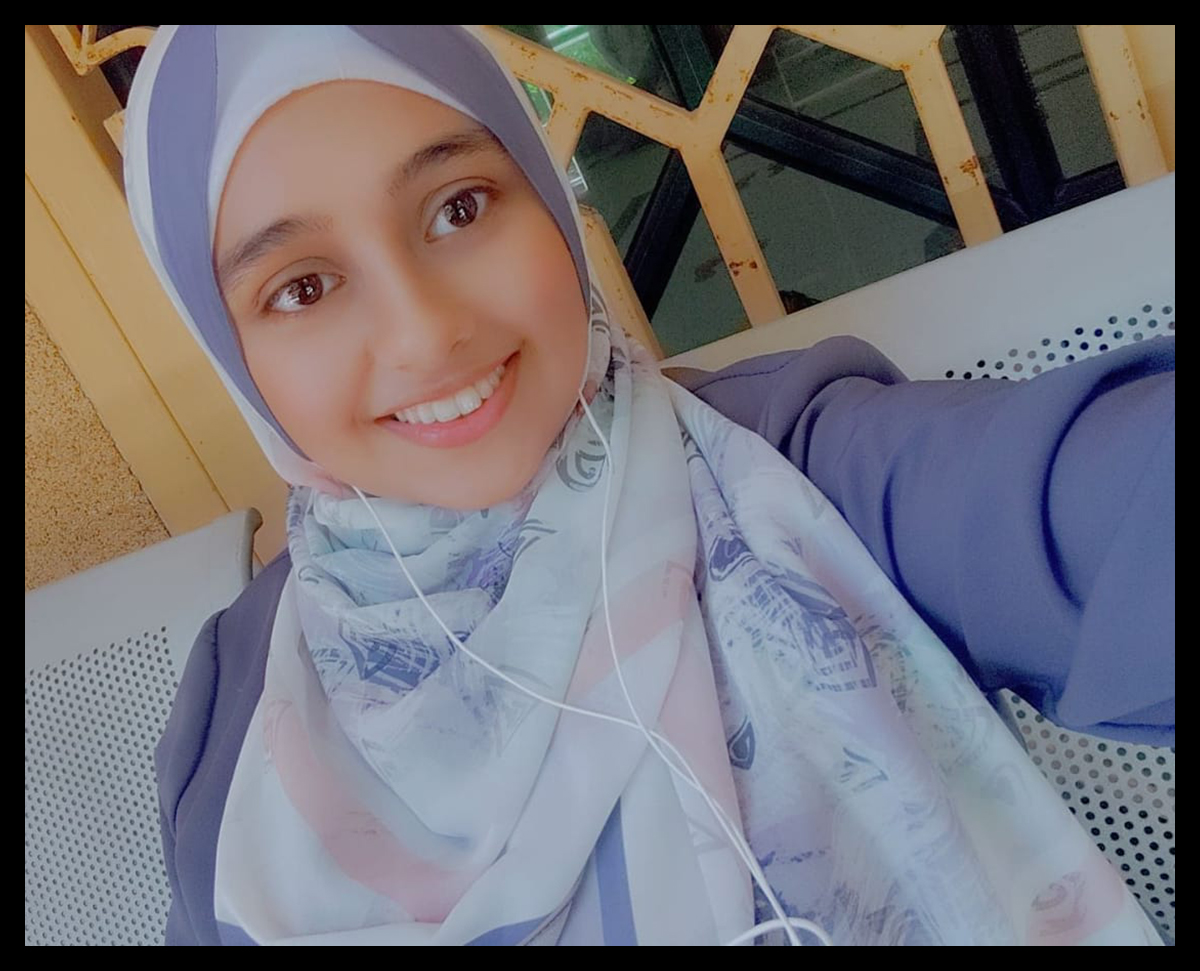
Herzallah is a student at the Islamic University in Gaza and an English instructor at a language center in Gaza City. She spoke to TIME on Oct. 17.
My university is now completely destroyed. My workplace is completely destroyed. And now I’m stuck in the middle of Gaza City with my brother, his wife, his children, my mother, and my father.
No words can describe the situation that we are living in right now. There is blood everywhere. Bad news everywhere. We are just counting our days, let me not say days, but minutes, till death. Because each minute we may die, we may be killed. I lost my cousin and her children. I lost my friend. I’m losing my beloveds.
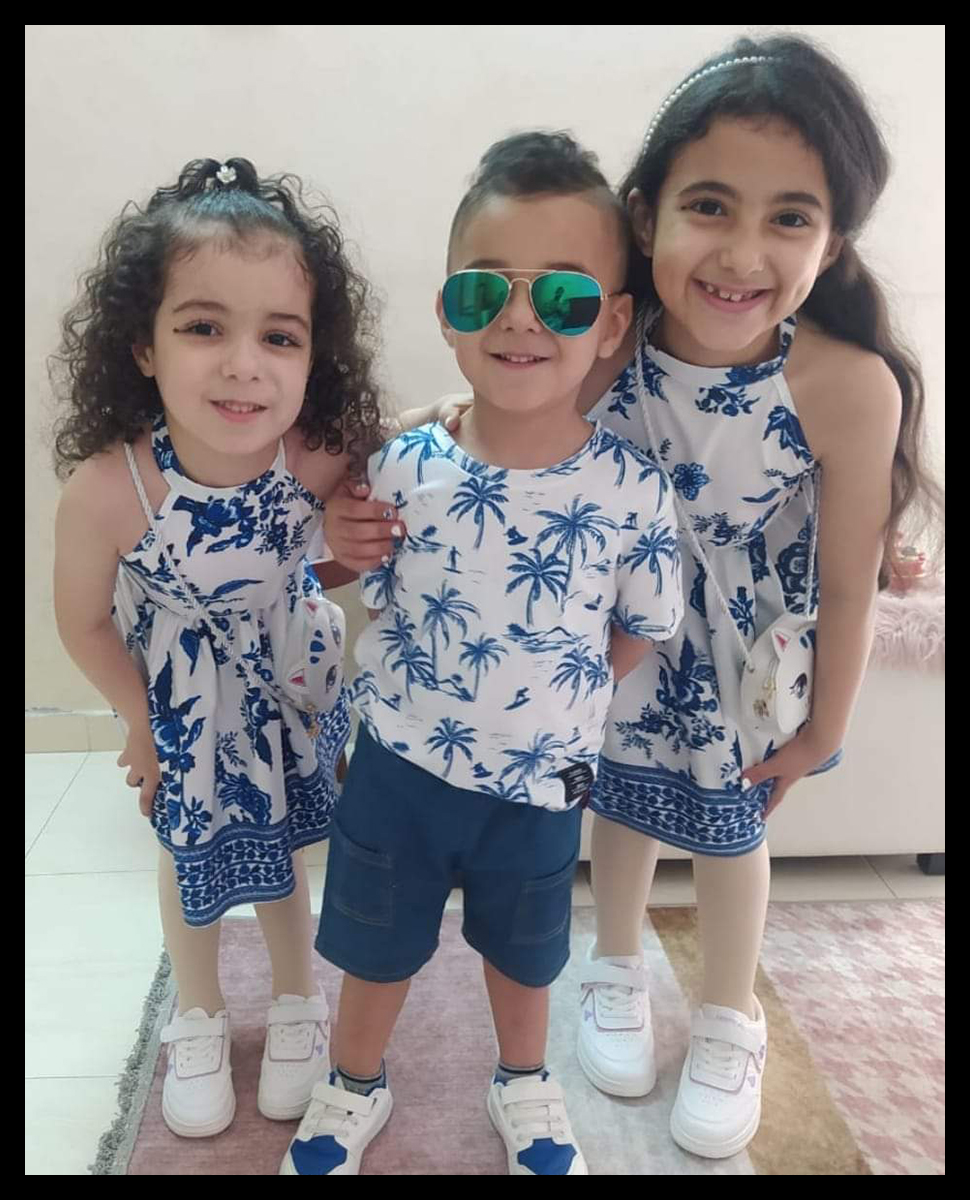
“Are you safe?” It’s now a ridiculous question because actually there’s no safety in Gaza. Nowhere, literally nowhere, is safe. They told people to go to the south and they bombed the south. They told people to leave the north and they bombed the north.
Everything is scarce. Water is an obstacle. Electricity is an obstacle. Gas, food, supplies. If we want bread, my brother and father have to get in line for maybe one hour or more. The bakery might open one day and close the next. We’re running out of everything.
Even if we are now alive, even if Gazans are alive, we are dead inside. No one can laugh, no one can sing, no one can talk. We don’t have the ability or the energy to do anything in our lives. We’re just waiting to die.
We don’t have a Plan B. We just don’t want to lose more people, more houses, more markets. I hope that we’ll stay alive, not because I want life, but because I want to tell our stories. The stories of our people. People have to know more about Palestinian history, and our suffering. We have been suffering since 1948. All we want to do is defend ourselves and our land.
—As told to Astha Rajvanshi
Yara Eid, 23
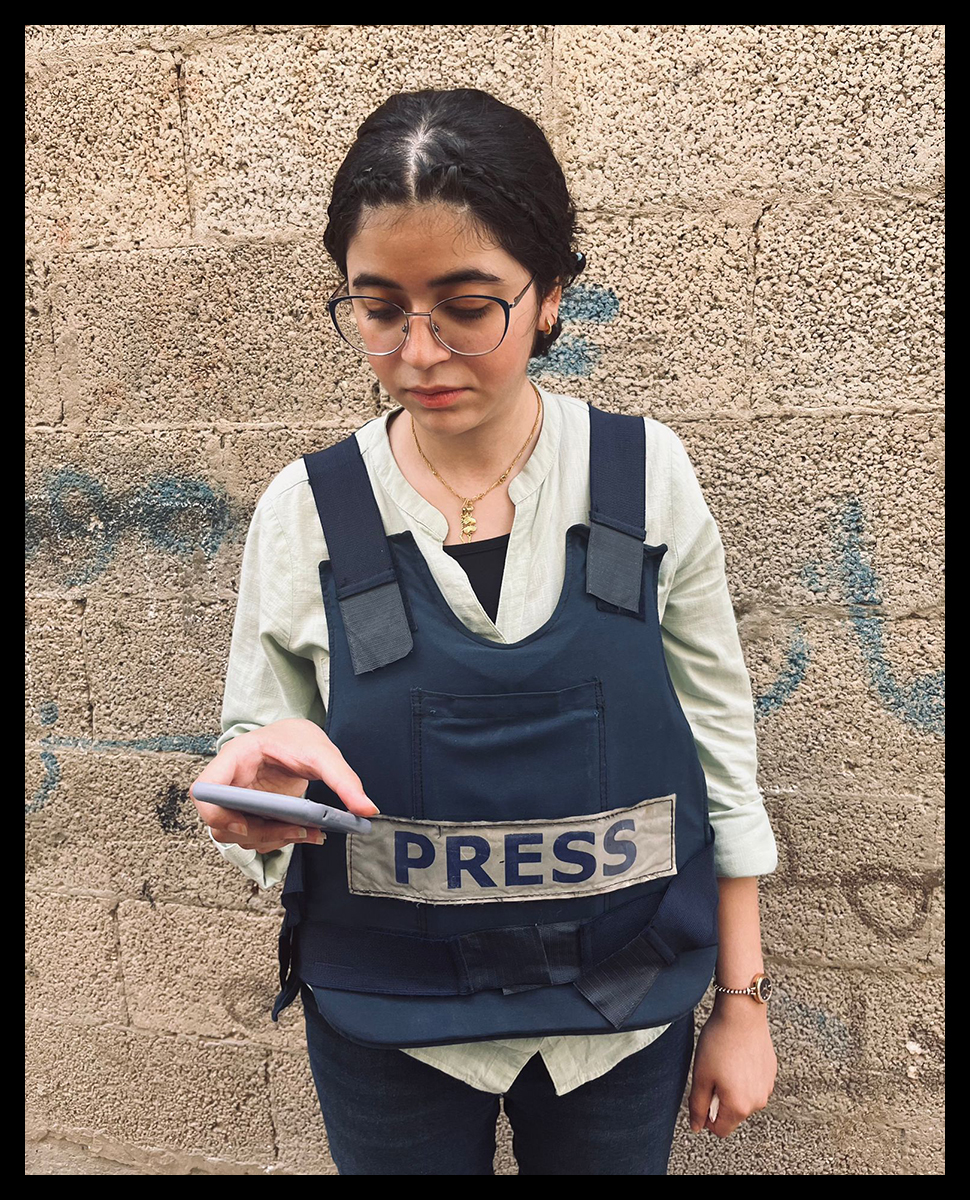
Eid is a Palestinian journalist who grew up in Gaza but has been living in the United Kingdom for the past seven years. She spoke to TIME on Oct. 18.
Two days ago, I got the news that my uncle's house was bombed. My uncle, my aunt, and all of their children and their grandchildren are all gone. I lost 14 members of my family in one airstrike.
Yesterday, I got the news that my aunt's house was bombed. I still don't know how many members I lost from my aunt's family. It could be 15, or it could be more. I lost my cousin who was only two years older than me. She was a dentist. She was going to Egypt this month to get married. She was so excited for her wedding. She was so excited for her new life. And they killed her and her family. The whole neighborhood there was completely bombed and everyone was under the rubble.
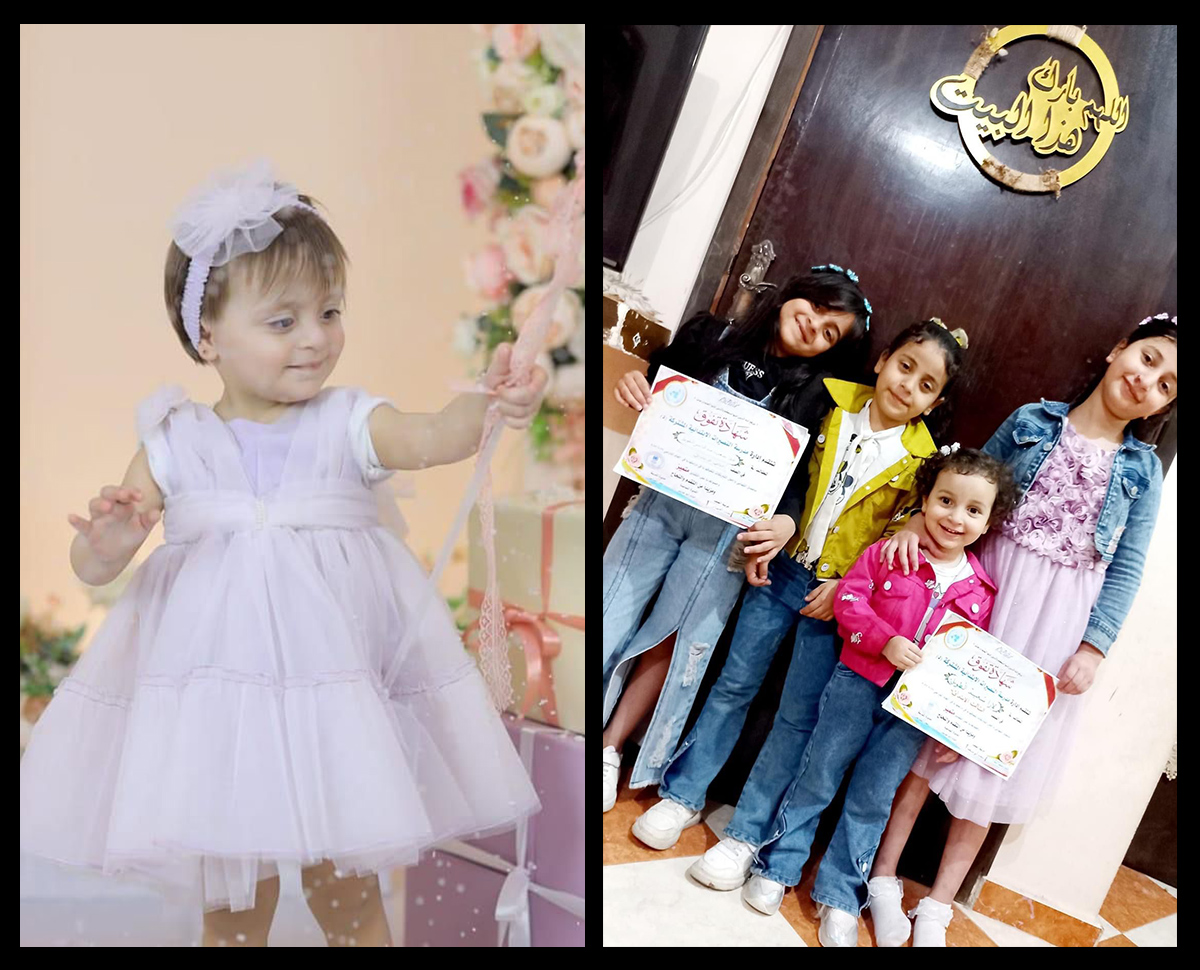
My mom is a U.N. employee and she has lost so many of her colleagues. She was in the north, not with the rest of my family, and now she has evacuated alone to the south near the Rafah border crossing. I haven't been able to talk to her. She doesn't have access to the internet at all. Sometimes her phone works and sometimes doesn't. One day, I couldn't reach her for more than 17 hours and I didn't know if she was alive or not.
With my other family members, I've tried to call them since the first day. I haven't been able to hear their voices. The only thing I'm doing is reporting, and I'm trying so hard to not hear the news of my family members being killed on the news.
I will never be able to live with the images I’ve seen. I'm having nightmares every single day. I'm unable to sleep because of what my people are going through. These are civilians. These are my family.
The only thing I want is to be with my family. I cannot explain how guilty I feel every single minute that I’m in the U.K. and my family is there. I've never felt this amount of pain and loss and grief. It would have been easier for me if I was on the ground with my family, witnessing what they were witnessing.
—As told to Astha Rajvanshi
Karim Abualroos, 27
Abualroos is a Palestinian writer, researcher, and human rights activist who lives in Belgium and lost relatives in Gaza to Israeli airstrikes. He spoke to TIME on Oct. 18.
Gaza has a big place in my heart. I was born in Gaza and studied there. I left Gaza as many young people do looking for a new life. I live in Belgium now with my wife Maisa Mansour, who is also a writer, and our son Ghasan.
The rest of my family though is still in Gaza under bombardment, where there is no safe place.
Israel killed my sister Hadeel Abu Alroos, a public school teacher, her husband Basil Khayyat, a public roads engineer, her daughters Eileen and Celine, and her sons Muhammad and Mahmoud. They were safe in their home. Israel bombed their home without warning and without guilt. Since hearing the news of their death, I checked the videos I have of my sister’s daughters. In all the videos, my nieces were dancing. They loved dancing.
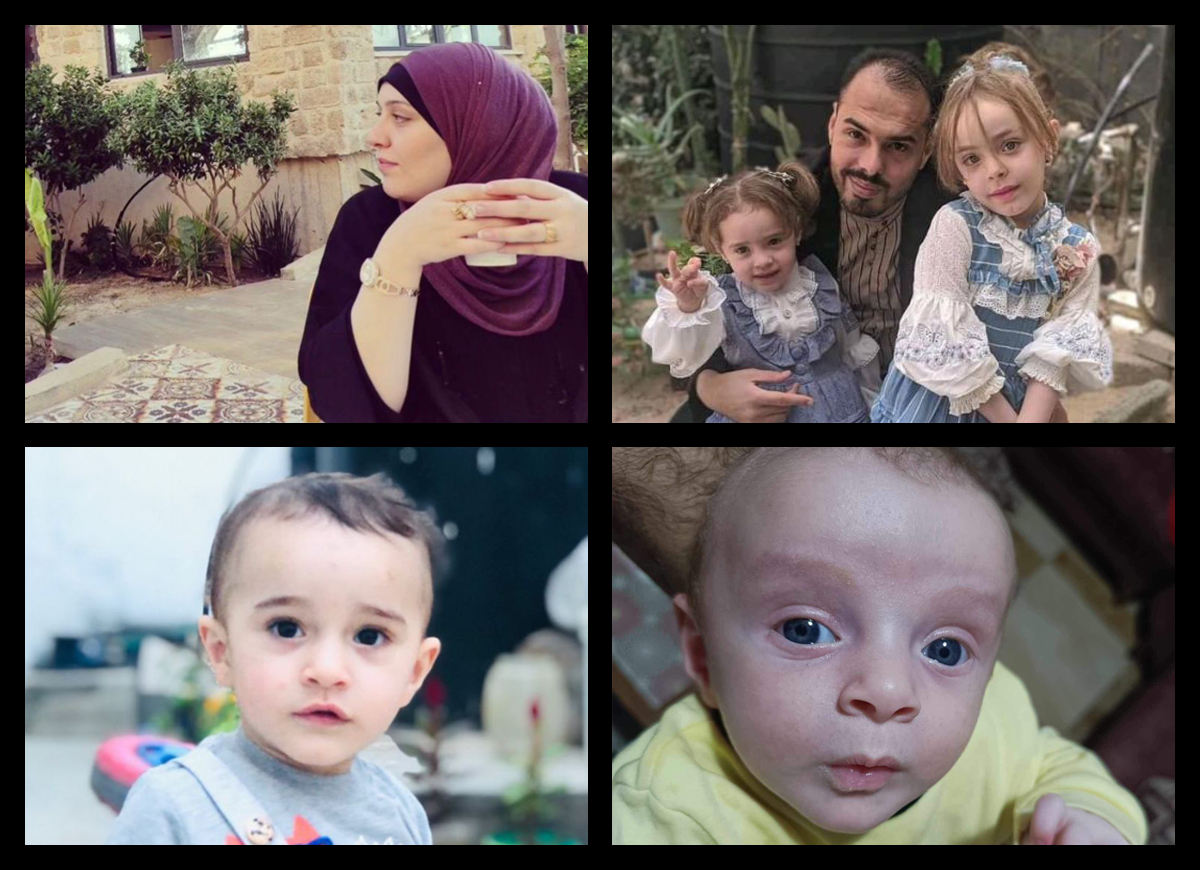
I did not expect it to be this horrific. I started following the news on television because of my inability to communicate with my family in Gaza to check on them due to the lack of the Internet and mobile reception. This fear and anxiety for those I love—my friends, my family, my colleagues—and all Gazans is the first feeling that comes to me.
The current situation in Gaza is terrifying and frightening. The people of Gaza do not deserve this. My sister and her daughters and sons did not deserve to be killed in this way that insults human dignity. They loved life, dreamed of traveling, and dreamed of being like the children of the world.
—As told to Astha Rajvanshi
Ghada Ageel, 52
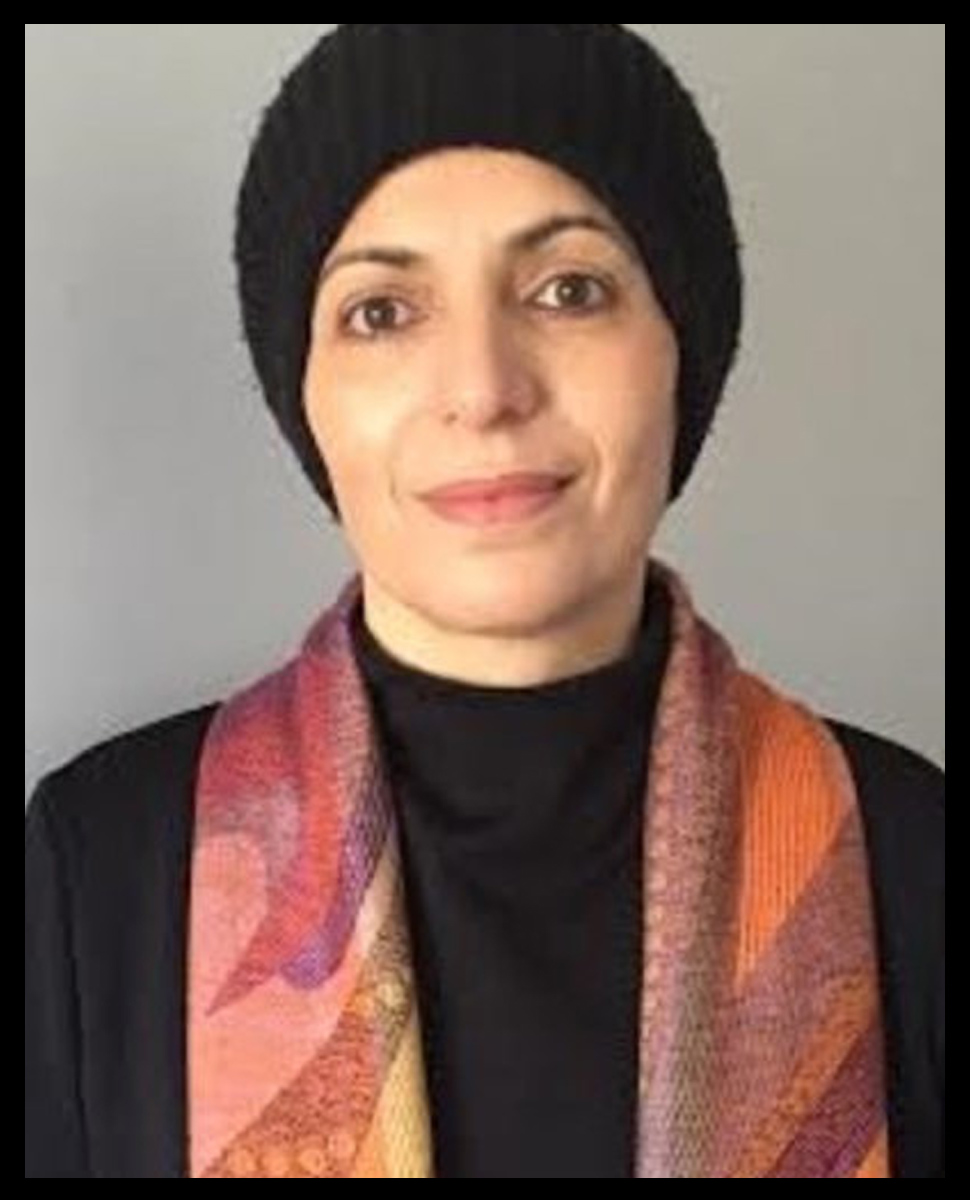
Ageel is a visiting Professor at the University of Alberta has been unable to reach her family in Gaza and fears for the worst. She spoke to TIME on Oct. 15.
My family is in the Gaza Strip. Only me, my husband, and two children are here in Canada. My brothers, my sisters, my neighbors, my friends, my aunts—everyone is there. I haven't been able to communicate with them over the past three days. A friend in Britain called me today and he said he got through to one of my brothers. And he said that they are OK. You don't know if the next morning will bring you atrocity. You don't know.
My cousin Hebba Abu Shammala was killed Thursday morning with her two kids. Hebba is a fourth-generation Palestinian refugee. She just got married four years ago. They lived in Khan Younis refugee camp in a very modest home. She called her mother Halima two days before and told her to come to her home. She also said “if we die, we die together.” She was laughing and her mom said “no, no, you should come and stay with us.” But Hebba thought it was going to be safer because it's not a border area. It's not next to any government buildings that might be a target. There's no safe place in Gaza now.
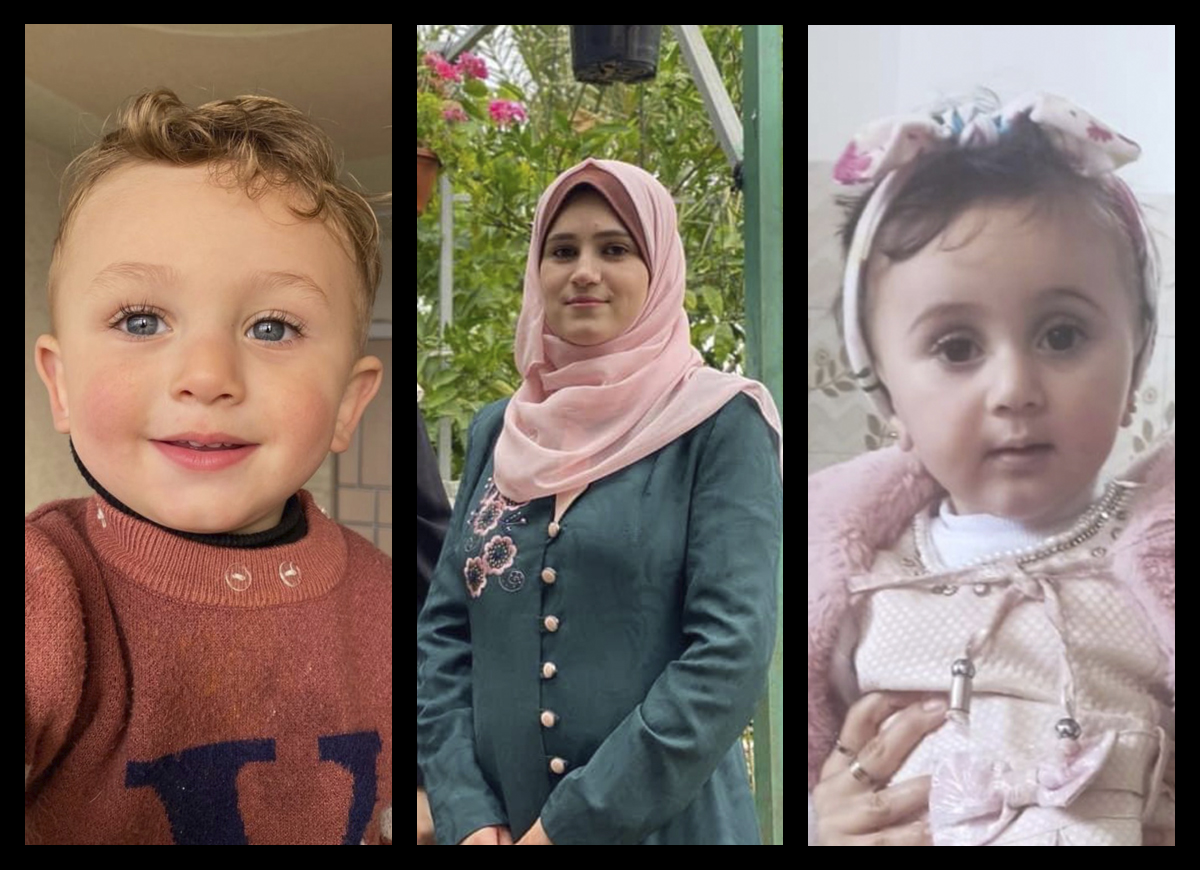
They are telling people to move from the north to the south, and now the south is under attack. Already today, probably five homes I know well have been bombed. And I am just going crazy because my sister is in the north, and we lost contact with her. I know that she left. But where did she go? We don't know.
I have a brother who's a doctor at the main hospital in Khan Younis refugee camp. I don't know if he's alive, if he's dead, how he's doing. As I speak now, I don’t know the fate of my sister in Gaza. I don’t know whether she made it or not. My sister is one of 2.3 million people under attack. Hebba, myself, my sister—our homes are in what is now Israel. We're refugees, and we have a right to return to our ancestral home. Maybe not today. But this is an inalienable right for everyone. Palestinians included.
Look at the photo of Hebba. There are hundreds, actually thousands, like Hebba now. I assure you there are thousands more, under the rubble.
—As told to Karl Vick
More Must-Reads from TIME
- Cybersecurity Experts Are Sounding the Alarm on DOGE
- Meet the 2025 Women of the Year
- The Harsh Truth About Disability Inclusion
- Why Do More Young Adults Have Cancer?
- Colman Domingo Leads With Radical Love
- How to Get Better at Doing Things Alone
- Michelle Zauner Stares Down the Darkness
Write to Yasmeen Serhan at yasmeen.serhan@time.com and Astha Rajvanshi at astha.rajvanshi@time.com
